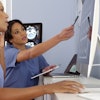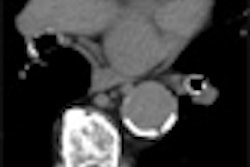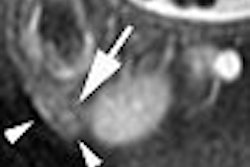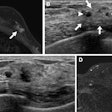Dear Women's Imaging Insider,
Urinary incontinence may affect up to 60% of women (ages 20-80) in the U.S., but the condition goes largely underreported, according to the Collaborative for Education on Urinary Incontinence and Women's Health.
Stress urinary incontinence can be particularly difficult to deal with, as the loss of bladder control occurs during the most mundane activities like sneezing or coughing. Managing these patients depends largely on diagnosing the specific type of sphincter deficiency. A group from Johns Hopkins Medical Institutions has proposed that MRI is up to the task.
Dr. Katarzyna Macura, Ph.D., and colleagues have been conducting long-term studies on the contributions of intraurethral and intravaginal MRI for the classification of incontinent patients. Click here for the details.
In breaking news in women's imaging, an Oregon-based insurance company has decided to rescind its decision to stop paying for computer-aided detection (CAD) when used in conjunction with imaging studies, including screening mammography. The firm, ODS Companies of Portland, said it had a change of heart after reviewing the literature on CAD. Get the rest of the story by clicking here.
In other news, the American College of Radiology (ACR) and the Society of Breast Imaging (SBI) withdrew from the National Accreditation Program for Breast Centers (NAPBC). What do you think of the ACR's proposal to launch its own Breast Imaging Centers of Excellence (BICOE) initiative? Send me an e-mail with your opinion by clicking here.
Finally, visit the Women's Imaging Digital Community for exciting articles on:
- A novel SPECT/CT scanner for 3D volumetric breast imaging
- PET studies indicating that a hormone treatment can boost myocardial function in women with angina
- A risk index that identifies postmenopausal women prone to nonvertebral fractures
- A potential connection between a rise in metastatic breast cancer and sentinel node biopsies
- Updated results from the U.K.'s Standardisation of Breast Radiotherapy (START) trials



















